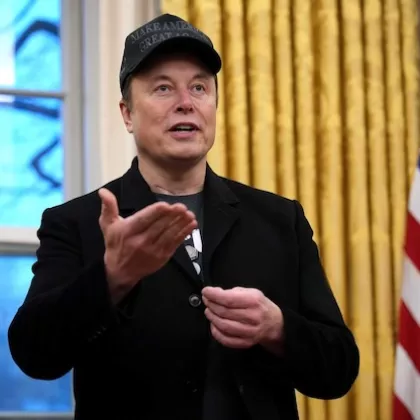Making sense of U.S. national debt: Part 2

Making sense of U.S. national debt: Part 2
December 1, 2021 | By Sevin Yeltekin
The national debt is anticipated to explode from $28 trillion to $89 trillion by 2029. Against a backdrop of congressional inaction, solutions to the runaway growth seem more elusive than ever.
There are few people more qualified to navigate a debate at the intersection of fiscal policy, monetary policy, and politics than Professor David Primo, a Simon colleague who is also a member of the University of Rochester’s Department of Political Science. For the second part of our series on the national debt, I sat down with him to understand the primary obstacles to reducing the debt to manageable levels—and if there is any hope of overcoming them.
Dean Sevin Yeltekin: In the past 10 to 15 years, there have been plenty of predictions about the economic slowdown that might happen at a certain debt-to-GDP ratio. We’re currently at a ratio of 125%. Why do you think these predictions have failed to materialize?
Prof. David Primo: There was a famous paper claiming that a debt-to-GDP ratio of 90% would result in an economic slowdown—though not negative growth—but that paper has been met with a lot of criticism. In general, economists agree that you’re likely to see a slowdown in growth when debt becomes too large relative to a country’s economy, but we don’t know what that magic number is—what “too large” is. It’s definitely not going to be the same for every country. The U.S. is in a different situation because the dollar remains the world’s reserve currency. We have more slack with foreign investors, who are buying greater percentages of our debt. In the last 20 years, we’ve actually seen the share of U.S. debt that is held by foreign governments and investors skyrocket to over 25% of total debt (and about a third of publicly held debt).
Dean Yeltekin: What could threaten foreign investors’ confidence in U.S. debt?
Prof. Primo: Obviously, defaulting on our debt would shake their confidence, but I don’t see that happening anytime soon. For some time now, we’ve witnessed political brinkmanship when it comes to the debt ceiling, but this is just a way for elected officials to make headlines. Judging from the bond markets, no one is too worried right now about the stability of U.S. debt.
There is always the possibility of wars, terrorist attacks, or other geopolitical events that could affect the U.S.’s global standing, translating into a crisis of confidence at an economic level. And you can also imagine a scenario in which other currencies gain favor among investors as more attractive stores of value. China aspires for the yuan to become the world’s dominant currency, which would reduce demand for U.S. debt. Finally, investors might decide at some point that a high debt-to-GDP ratio makes U.S. debt too risky. That being said, I don’t expect it to happen tomorrow or even next year. We still have some time.
Dean Yeltekin: If there is a flight out of U.S. debt, what will be the consequences?
Prof. Primo: A flight out of debt means higher interest rates, which will have a major effect on the U.S. federal budget. Our debt is increasingly short-term in nature and therefore exposes the government to risk from changes in interest rates as the debt gets rolled over. Former Treasury Secretary Larry Summers called the government’s reliance on short-term debt “bizarre.” If service rates on the debt spike, that will put enormous pressure on an already strained federal budget. What are the consequences when all of these pressures come to a head? We can look to Japan as a prime example. Japan has one of the highest debt-to-GDP ratios among major economies, and it’s had anemic economic growth for decades. This has consequences for living conditions and quality of life that can last for generations. That’s why economists are so concerned about reaching a tipping point where debt starts to have a major effect on economic growth.
Dean Yeltekin: Do you see any potential to grow our way out of debt?
Prof. Primo: Economic growth can help us manage the debt if growth rates exceed the interest rate on the debt. Moving forward, that seems unlikely given increasing pressures on the budget. Maybe in a world where we didn’t have to contend with rising costs of Social Security and Medicare, growing out of the debt would be a viable option, but that’s not the world we’re living in. Instead, we’re in a situation in which Medicare is going to put incredible pressure on the federal budget in the coming decades.
Social Security is more straightforward. It may not be politically easy to reform, but there’s a straightforward accounting solution. You simply alter benefits, taxes, and/or the age of eligibility. But Medicare is a completely different product. To reform Medicare, you have to restructure the entire U.S. healthcare system, and there are powerful interest groups who have a say in how that restructuring takes place.
Dean Yeltekin: A lot of recent debate has focused on the fiscal impact of the infrastructure and social spending bills. Are concerns about the price tag of these bills justified?
Prof. Primo: As Social Security, Medicare, and interest payments on the debt soak up a bigger share of the federal budget each year, there isn’t room for much else these days. Spending related to infrastructure, climate change, and everything else included in President Biden’s Build Back Better plan is adding to an already precarious debt burden. Despite what its proponents claim, the Build Back Better plan will almost surely add to the debt. Many argue that policies like paid family leave will spur economic growth, but I don’t see it delivering the kind of firecracker growth we would need to justify adding to the debt. This isn’t a criticism of the merits of these sorts of policies. It’s that the timing isn’t right, since we haven’t done anything to deal with our existing budget problems.
Dean Yeltekin: Among the other options for reducing the debt, which do you prefer?
Prof. Primo: Outside of achieving higher levels of economic growth, there is a fairly limited set of options: You can print more money, raise more revenue, or cut spending. At the simplest level, the government can print money to pay down the debt. The resulting inflation would technically reduce the cost of serving the debt, but that would be a highly unpopular option among the general public. No government would contemplate this option unless it was experiencing a major crisis.
The second option is to raise revenue. Ultimately, there may need to be some tax increases to stabilize debt, but Americans oppose broad-based tax increases. Few middle-income Americans want to pay the same tax rates as middle-income earners in many parts of Europe. But if you focus exclusively on taxing the highest earners, the math doesn’t check out. At a recent event I moderated for the Politics and Markets Project, Brian Riedl of the Manhattan Institute pointed out the following: If we seized every dollar of wealth from every U.S. billionaire, it would fund the federal government for 10 months; and if we seized the fortune of Jeff Bezos, it would fund a mere 13 days of federal spending in the fiscal year 2022. When it comes to this idea that we can tax our way out of debt by targeting the wealthy, the math just doesn’t work.
Ultimately, the best option is to get spending under control. I’ve been arguing for greater fiscal responsibility for two decades now. Instead of adding new programs and entitlements that are very difficult, if not impossible, to scale back, we need to think carefully about a fundamental restructuring of the federal government’s role in American society.
Dean Yeltekin: What would it take to muster the political will to tackle the debt by cutting spending?
Prof. Primo: A miracle? I’m exaggerating, but not by much. One possibility is a “Nixon goes to China” moment where someone like Bernie Sanders, whom you’d never expect to talk about a fiscal crisis, to sound an alarm bell. More generally, you need leadership: elected officials who are willing to make tough decisions and risk losing office as a result. There are two problems here. First, it’s wishful thinking to believe elected officials are going to sacrifice their political careers for the greater good. Second, it’s constitutionally difficult to bind a future president and Congress, which makes it hard to enact long-term reform. It’s also why I have testified before Congress on the importance of amending the U.S. Constitution to incorporate constraints on the federal budget.
Dean Yeltekin: You’re not a big fan of Modern Monetary Theory (MMT), which says that countries that print their own currency can spend as much as they’d like without repercussions—at least up to a point. Can you explain your reasoning?
Prof. Primo: Many political economists—including me—are critical of MMT, but without a doubt, it has had a tremendous amount of influence in recent years. You can spot its influence in President Biden’s budget. I can see why the theory is so seductive. You read it and it just sounds so good. But it all hinges on inflation staying at reasonable levels. It hinges on a belief that a government can somehow make spending changes on the fly once inflation reaches an unmanageable level. That view requires an awful lot of faith in the ability of politicians to adjust. Ultimately, there is an unrealistic attitude toward what governments are capable of doing. Economies are very complex enterprises that represent trillions of individual decisions. I am not convinced that the Fed, Congress, or the president will always be able to get it right in terms of adjusting monetary or fiscal policy.
Dean Yeltekin: Do you consider yourself an outlier in your field on the issue of national debt?
Prof. Primo: Many in my field are concerned about the national debt, as am I, but I’m an outlier in my support for constitutional budget rules that constrain government budgets. Those on the left worry about spending cuts that might result, and those on the right fear that moving closer to a balanced budget will result in tax increases. In the long run, though, large deficits should be the exception, not the rule, and the opposite is true now. As I shared in an earlier blog post, I don’t see an easy way out of the mess we’ve created. Every day, our situation grows more precarious.

Sevin Yeltekin
Dean, Simon Business School

David Primo is the Ani and Mark Gabrellian Professor and a professor of political science and business administration at the University of Rochester, where he directs the Politics and Markets Project.
Follow the Dean’s Corner blog for more expert commentary on timely topics in business, economics, policy, and management education. To view other blogs in this series, visit the Dean's Corner Main Page.











